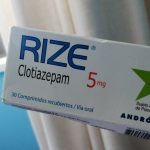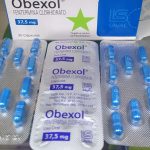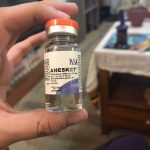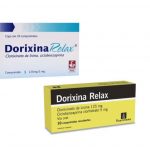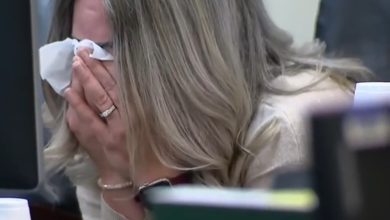Bonadoxina: Uses, How it works, Dosage, Side Effects, Addiction
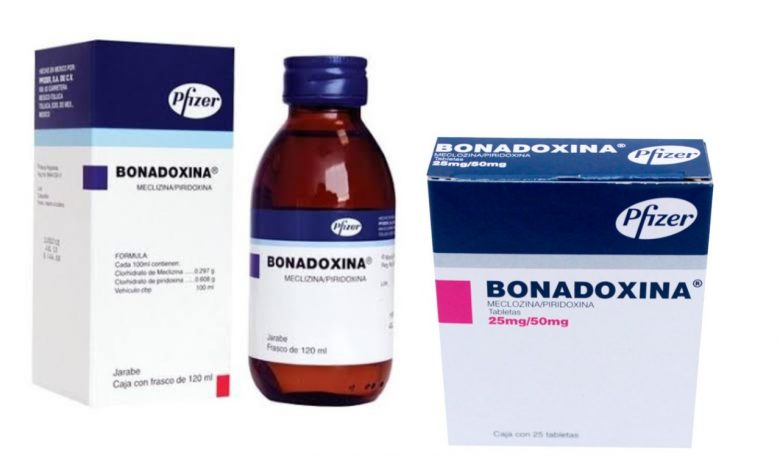
What is Bonadoxina?
Bonadoxina is a combination medicine containing meclizine and pyridoxine hydrochloride (Vitamin B6). Bonadoxine is produced by Pfizer Laboratories and used for the preventive treatment of nausea, vomiting and vertigo.
Vertigo is a symptom, rather than a condition itself. It’s the sensation that you, or the environment around you, is moving or spinning. This feeling may be barely noticeable, or it may be so severe that you find it difficult to keep your balance and do everyday tasks. Not only can this condition leave you feeling dizzy and unbalanced, but it can also cause nausea, which is a feeling of being sick to your stomach.
Bonadoxina is available as drops, syrup, tablets, and injectable solutions. The ingredients in each formulation are presented below:
- Bonadoxina Drops: contains 0.833 g of Meclizine and 1.666 g of Pyridoxine
- Bonadoxina Tablets: contains 25 mg of Meclizine and 50 mg of Pyridoxine
- Bonadoxina Syrup: contains 0.297 g of Meclizine and 0.608 g of Pyridoxine
- Bonadoxina Injectable solution: contains 25 mg of Meclizine, 50 mg of Pyridoxine, and 20 mg of Lidocaine
How it works
Bonadoxina contains meclizine, an antihistamine that works by blocking the signals to the brain that cause nausea, vomiting, and dizziness. pyridoxine hydrochloride plays a key role in the formation of neurotransmitters, including serotonin and dopamine. It works by blocking the action of certain natural substances in the body that may contribute to nausea and vomiting.
In combination, these two active ingredients work synergistically in Bonadoxina in the preventive treatment of nausea, vomiting, and vertigo.
How should I take Bonadoxina?
The recommended dose of Bonadoxina depends on the condition you are treating. Follow the directions on your prescription label or the package label carefully, and ask your doctor or pharmacist to explain any part you do not understand. Take Bonadoxina exactly as directed. Do not take more or less of it or take it more often than prescribed by your doctor.
The recommended dose of Bonadoxina for the different conditions is as follows:
- Adults and children over 6 years of age: 25 to 100 mg daily in divided doses, depending on clinical response. To treat vertigo, you may need to take Bonadoxina several times daily. Follow your doctor’s instructions.
- Nausea and vomiting during pregnancy: 1 daily dose of 25 to 50 mg
- Sea sickness: 1 single dose of 25 to 50 mg, before starting the trip and for 24 hours
- Ear disorders: 25 to 100 mg daily, depending on clinical response
- Radiation sickness: 50 mg, given 2 to 12 hours before the radiation therapy session
Bonadoxina may impair your thinking or reactions. Be careful if you drive or do anything that requires you to be alert. Drinking alcohol can increase certain side effects of this medication.
What happens if I miss a dose of Bonadoxina?
Since Bonadoxina is sometimes taken only when needed, you may not be on a dosing schedule. If you are taking the medication regularly, take the missed dose as soon as you remember. Skip the missed dose if it is almost time for your next scheduled dose. Do not take extra medicine to make up for the missed dose.
What happens if I overdose?
If you or someone accidentally took more than the recommended dose of Bonadoxina, seek emergency medical attention or call the Poison Help line at 1-800-222-1222.
What are the side effects of Bonadoxina?
The more common side effects of Bonadoxina can include:
• blurry vision
• drowsiness
• dry mouth
• headache
• tiredness
If these effects are mild, they may go away within a few days or a couple of weeks. If they’re more severe or don’t go away, talk with your doctor or pharmacist.
Serious side effects
Call your doctor right away if you have serious side effects. Call 911 if your symptoms feel life-threatening or if you think you’re having a medical emergency. Serious side effects and their symptoms can include the following:
• serious allergic reactions, with symptoms such as:
o trouble breathing
o swelling of your throat or tongue
Bonadoxina may cause other side effects. Call your doctor if you have any unusual problems while you are taking this medication.
If you experience a serious side effect, you or your doctor may send a report to the Food and Drug Administration’s (FDA) MedWatch Adverse Event Reporting program online (http://www.fda.gov/Safety/MedWatch) or by phone (1-800-332-1088).
Meclizine may interact with other medications
Bonadoxina can interact with other medications, vitamins, or herbs you may be taking. An interaction is when a substance changes the way a drug works. This can be harmful or prevent the drug from working well.
Taking Bonadoxina with certain medications raises your risk of side effects from these drugs. Examples of these drugs include:
- Alprazolam
- Baclofen
- Carbinoxamin
- Chlordiazepoxide
- Chlorpromazine
- Clonazepam
- Clozapine
- Diazepam
- Diphenhydramine
- Doxepin
- Estazolam
- Eszopiclone
- Fluphenazine
- Flurazepam
- Haloperidol
- Hydroxyzine
- Lorazepam
- Methocarbamol
- Olanzapine
- Orphenadrine
- Paroxetine
- Quetiapine
- Risperidone
- Suvorexant
- Temazepam
- Triazolam
- Zaleplon
- Zolpidem
Taking these drugs with Bonadoxina can increase your risk of unwanted side effects. These include drowsiness, slowed breathing, and trouble thinking.
Is Bonadoxina addictive?
No, Bonadoxina is not an addictive medication. Even Bonadoxina injectable solution which contains lidocaine is essentially devoid of activity at monoamine re-uptake transporters and has no rewarding or addictive properties. However, using Bonadoxina often result in a higher risk of falling especially in elderly patients. Meclizine one of the active ingredients in Bonadoxina has an “anti-cholinergic” effect on the brain which results in irreversible cognitive impairment with long-term use.

